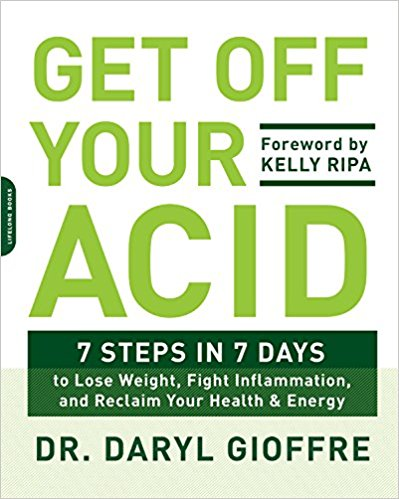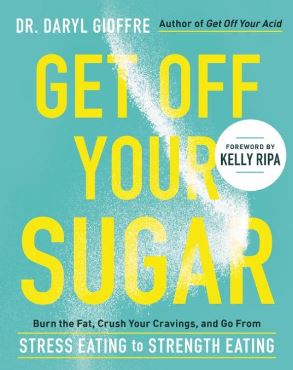
If you’re familiar with my advice at all, you know I often encourage you to eat raw nuts, nut butters, and seeds.
They’re a great source of healthy fat, high in protein and fiber, low in sugar, and they can help regulate blood sugar levels, decrease hunger urges, fight free radicals, and help keep you young.
But there’s one nut I NEVER recommend you eat, and that’s the peanut, which isn’t a nut at all, but a legume.
Peanuts contain 21 forms of aflatoxin, a cancer-causing fungus.
Because peanuts grow underground in soft, permeable shells, they commonly become contaminated with mold, which is a source of aflatoxin, a potent cancer-causing fungus. Even if they didn’t get exposed underground, mold can grow during the shipping and storage process that brings peanuts to your table.
The World Health Organization stated that “aflatoxins pose a serious health risk to humans,” and that “most human exposure comes from nuts and grains.”
And here’s what’s even worse…
Peanut producers take all the pretty looking peanuts with less fungus and mold, and put those in the cocktail peanut jar. Then all of the peanuts riddled with mold get mashed up into the peanut butter that our kids love to eat so much (and perhaps you as well)!
Peanuts aren’t the only food that contains aflatoxin. Eggs and milk both have them, wheat, rice, and millet have them, and corn is even worse than peanuts! It contains up to 25 different forms of aflatoxin.
Studies have linked aflatoxin exposure to liver and gallbladder cancers and developmental problems in children including stunted growth.
The FDA has set limits on acceptable exposure levels for human-consumed foods, but there is not clear evidence on what level of exposure are actually safe. Some researchers believe that the current regulations are “not adequately protective” – if they’re even enforced.

You might think, “I’m okay, I only eat organic peanut butter.” But guess what? It doesn’t matter if it’s organic or not, it has the SAME exposure. I don’t even care if they are organic peanuts meditating in the Himalayan Mountains - they’re still exposed to the aflatoxin fungus.
One question I have gotten is, “What about the peanuts you grind yourself at Whole Foods? Good question, but the research shows that those peanuts actually have MORE aflatoxin and mold than the ones you find in the jar, so you just can’t trust it.
Stop giving kids peanut butter, here what you can do to protect yourself from aflatoxin exposure?
Buy local and consume quickly. The longer foods sit, the more potential exposure to mold they have. So buying from a local distributor rather than a company that ships from overseas is the first precaution. Then once it’s in your home, try to use it up within a month or two.
Eat a diet rich in green veggies. Drinking green juice along with peanuts actually prevents the mold from being as harmful to humans. Studies have shown that a diet rich in vegetables like carrots, celery, and herbs reduces the carcinogenic effects of aflatoxin, while other studies have shown that eating a diet rich in chlorophyll and taking chlorophyll supplements like Alkamind Daily Greens reduces absorption of aflatoxins.
Keep nut butters in your fridge. All nut butters, but especially peanut butter if you’re going to eat it, should be refrigerated because it inhibits the growth of mold and fungus.
Soak and sprout your nuts, legumes, and seeds. Taking the simple step of soaking these foods in water 20 minutes to overnight (then rinse) before eating them decreases exposure to molds and anti-nutrients while increasing bioavailability.
Eat other nuts and nut butters instead. Instead of peanut butter, go for raw sprouted almond butter, cacao butter, coconut butter, or macadamia nut butter. Be sure it’s raw, ideally sprouted, and you can even get flavored varieties. YUM.

Here’s a list of my favorite alternatives to peanuts:
- Walnuts contain high amounts of manganese, which works wonders for PMS sufferers out there.
- Almonds are rich in vitamins and healthy fats and can help reduce weight and inflammation levels.
- Cashews are rich in zinc and magnesium, which improves focus, speeds muscle recovery, and helps you get a better night’s sleep. However, eat these in moderation as they can accumulate mold as well (albeit, not close to what peanuts do)
- Pecans are among the highest in antioxidants. They help delay progression of degenerative neurological diseases like ALS (also known as Lou Gehrig’s disease). They can also help lower LDL levels.
- Brazil nuts contain more than 100% of your daily requirement for selenium, which may help prevent certain cancers. Try and limit your consumption to 1 to 2 servings per day since you don’t want more selenium then you need.
- Macadamia nuts contain the largest amount of heart healthy monounsaturated fats (MUFA), more then any other nuts.
- Pistachios are packed with potassium, a mineral essential for a healthy nervous system and muscles, and are a good source of vitamin B6, which can lift your mood, fortify your immune system, and more. According to the University of Texas M.D. Anderson Cancer Center, researchers found that eating two ounces of pistachios daily may reduce lung cancer risk.
- Hazelnuts are known for their high levels of monounsaturated fats. They can help manage type 2 diabetes and are also good for eye health.
Stick with raw (unroasted) nuts for all of those varieties because the roasting process has carcinogenic effects. And most nuts should be eaten in moderation due to their omega-6 (inflammatory) fat content.
Combat the risk off too many inflammatory fats by getting your daily dose of anti-inflammatory omega-3 fats.
It’s very difficult to eat a diet rich enough in Omega-3, and unless you eat salmon 3 meals a day, you are deficient without a supplement.
Our Alkamind Daily Omega-3 is the best quality supplement on the planet. It’s the ONLY one with the ideal 2:1 ratio of EPA to DHA in a highly concentrated form. So you can take less and get more benefit from it. Plus it’s heavy metal free (and free of 400 other contaminates tested for in a 3rd party FDA registered facility) and guaranteed for potency and freshness, so no fishy aftertaste.
Subscribe & Save 15% today, and got on a monthly plan to reduce inflammation, and save money while doing so!
GET OFF YOUR ACID!
Dr. Daryl
 Skip to content
Skip to content






